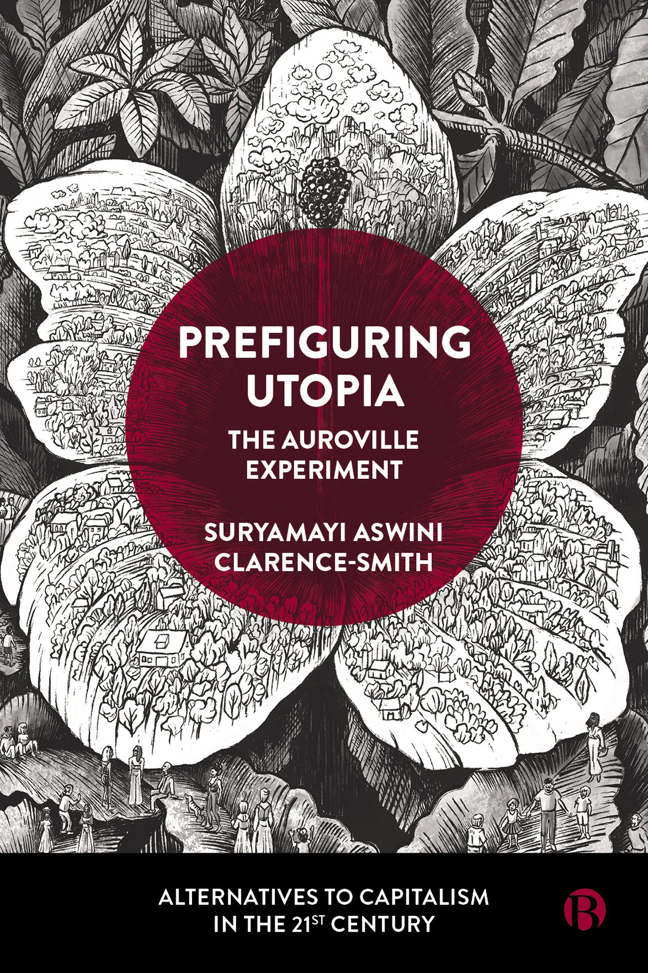Book contents
- Frontmatter
- Dedication
- Contents
- List of Figures and Tables
- Glossary
- About the Author
- Acknowledgements
- Foreword
- 1 All Life is Yoga: An Introduction
- PART I Culture
- PART II Polis
- PART III Economy
- Afterword
- Appendix A A Dream (The Mother, 1954)
- Appendix B The Auroville Charter (The Mother, 1968)
- Appendix C To Be a True Aurovilian (The Mother, 1971)
- Notes
- References
- Index
3 - A Spiritually Prefigurative Culture: The Uniqueness of Auroville's Utopian Practice
Published online by Cambridge University Press: 24 January 2024
- Frontmatter
- Dedication
- Contents
- List of Figures and Tables
- Glossary
- About the Author
- Acknowledgements
- Foreword
- 1 All Life is Yoga: An Introduction
- PART I Culture
- PART II Polis
- PART III Economy
- Afterword
- Appendix A A Dream (The Mother, 1954)
- Appendix B The Auroville Charter (The Mother, 1968)
- Appendix C To Be a True Aurovilian (The Mother, 1971)
- Notes
- References
- Index
Summary
Introduction
Les utopies ne sont souvent que des vérités prématurées. [Utopias are often only premature truths.]
De Prat de Lamartine, 1847: 322In 1977, the term ‘prefiguration’ was first used to define ‘the embodiment within the political practice of a movement, of those forms of social relations, decision-making, culture, and human experience that are [its] ultimate goal’ (Boggs, 1977: 100). The context was the ‘New Left’ social movements that arose in the 1960s, peaking in 1968 (the year Auroville was founded) with the students’ revolt in Paris, which The Mother was very interested in. These protests were precipitated and shaped by changes in culture and lifestyle – captured in the feminist movement's slogan ‘the personal is political’ – and early scholars of prefiguration conceptualized a broad spectrum of social movement practices as prefigurative (Breines, 1989; Epstein, 1991). In this chapter, we will look at a few examples of how practices in Auroville are uniquely spiritually prefigurative – in realms as diverse as work, art, education and town planning.
Over the last decade, the label ‘prefigurative’ has risked becoming exclusive to horizontal forms of organizing and decision making in social movements like Occupy Wall Street and the Global Justice Movement (Franks, 2003; Maeckelbergh, 2009; Graeber, 2010). Only such ‘strategic’ practices, that is, ones that directly engaged with achieving political change, were identified as prefigurative, while the role and significance of sociocultural/lifestyle practices in prefiguring social movements’ overarching goals were disregarded (Yates, 2015). The restrictive scope on strategic political practice is perhaps why prefiguration has barely been associated with utopianism (see Juris, 2008; Dinerstein and Deneulin, 2012; Yates, 2015; Monticelli, 2018). Yet, those articulating a prefigurative politics are driven by the desire to live in a radically different society, shaped by alternative values than those of mainstream capitalism, understood not just ‘as an economy but as a society’ (Streeck, 2016: 201). Such an alternative society needs to be prefigured in all its aspects – education, work, social relations and so on – an exercise that intentional communities engage in through utopian practice.
However, while the utopian practice of such communities is not necessarily tied to political change in mainstream society, prefigurative practice is expected to enact and engender such change.
- Type
- Chapter
- Information
- Prefiguring UtopiaThe Auroville Experiment, pp. 35 - 54Publisher: Bristol University PressPrint publication year: 2023

